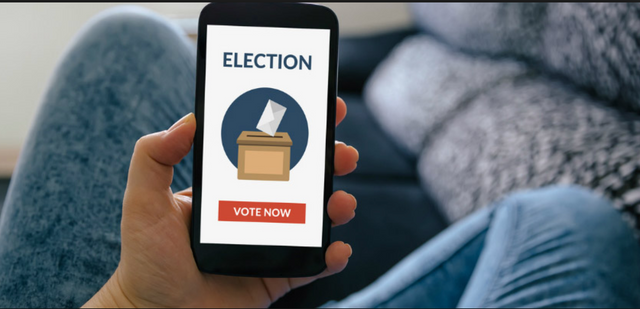Digital elections, the answer is blockchain?
Technology takes giant steps but there is an action that so far seems impossible or almost to digitize and make smart. That is the elections. Not that attempts were missed: what we can remember best is perhaps the Lombard referendum of last October, but there have also been other experiences in the world - none really convincing.
So far there have been failures or at most partial successes , but the idea has not been set aside. The temptation to digitize the vote is strong and for reasons easy to understand: electronic voting costs less and potentially can lead more citizens to express themselves, perhaps comfortably from their homes or even via smartphones. Something that, at least in theory, should stay on top of every democratic country's priorities.
www.counos.io
Prohibited dreams that could become a little more real through blockchain. There was already a first experiment last March in Sierra Leone. Here the Agora company used its ledger to coincide with the elections, for demonstration purposes. Something similar was done in West Virginia last May 8 - in this case, a smartphone app was also used.
Thanks to the "innate" security functions in the blockchain, one could ensure that each person votes once only, and at the same time that the expressed vote is fully protected. It would allow in theory to completely overcome the danger of electoral fraud, a problem that from time to time emerges even in the most advanced states.
The experimentation is also attended by a young Italian company: Multiversum, which has recently raised about $ 9 million through an ICO, has in fact developed a voting system dedicated to Italians abroad. It is based on their blockchain, which they call "fourth generation", and may soon be at the center of a real experimentation (negotiations are under way).
In the case of Multiversum, the first step is to create a database with those entitled to vote (extrapolated from the lists of consulates). A virtual voting card is then created, which will be protected by the security systems inherent in the blockchain. The votes, inserted in the ledger, will be impossible to alter. We will come back to talk about this company in a future article.
Of course, there are many, many knots from cliffs. The first is the verification of identity, in the case of distance voting: it is not easy, in fact, to make sure that the person who expresses the vote is precisely who he says he is. At the same time, however, respect for electoral secrecy must be guaranteed, so make sure that every vote is anonymous. Today when we vote we register personally, but the card is anonymous in the middle of all the other cards. A simple gesture, at the moment impossible to replicate with the technology, maintaining and improving the other guarantees.
The vote via blockchain also would not protect us from problems like the exchange rate or the buying and selling of votes, but on the other hand, these problems can not be solved even with the card. With Blockchain, of course, we could eliminate some of the security issues related to the electoral process. And at the same time lower costs.
Votes in blockchain would be absolutely transparent, easy to count and impossible to change. Offering these guarantees with paper is very difficult and expensive. By renouncing distance voting, one could immediately hypothesize a digital voting booth that exploits this type of technology.
The US Voatz (in the US experiment), or the Russian Kaspersky with its Polys system for online surveys,have worked on it, among others. A representative of Horizon State, another specialized company, claims that governments and institutions are showing increasing interest in this possibility - their company would be in talks with at least two states, and is convinced that at least one of them will be ready for a real test within four years. APLA is active in Dubai, where it provides similar services to companies.
The problems are not lacking, as we have seen. But not even the proposals to solve them. Many will prove bankrupt, of course, but it is reasonable to think that over a decade or so, perhaps less, we will finally have solved the question of digitization of the vote.
This will not make the politicians of the world better, but it could actually make the democracies of the world more involved. And if it is true that participation is the backbone of a democracy, then it can only be good news.